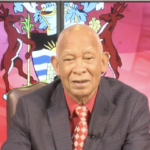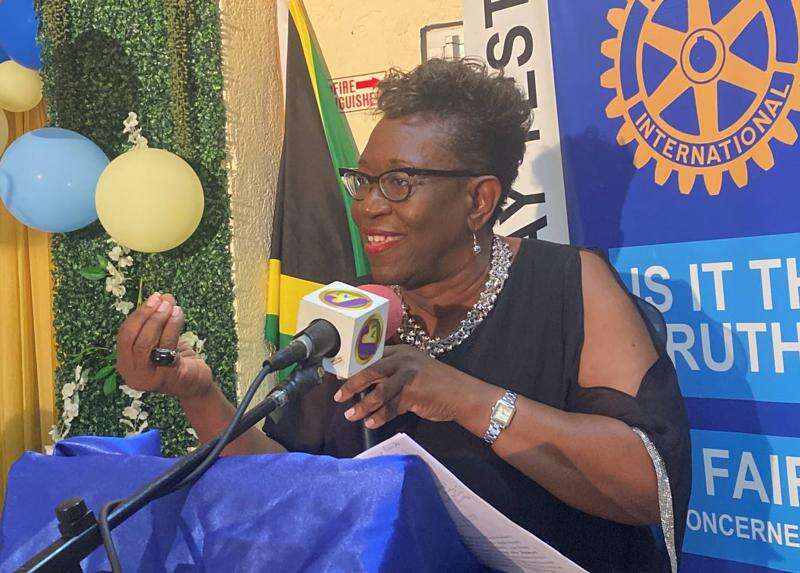MANDEVILLE, Manchester — Director of Public Prosecutions (DPP) Paula Llewellyn has offered a word of caution to the Integrity Commission: Be wary of triggering particular perceptions about people by words, actions or non-actions.
Llewellyn made the recommendation Saturday night in an address to the Rotaract Club of Mandeville President’s Dinner and Installation against the background of the recent public joust between the commission and Government politicians over the manner in which the commission operates.
The bitter exchanges between Government legislators in both Houses and the commission eventually resulted in Prime Minister Andrew Holness, in an address to Parliament two weeks ago, urging his colleagues to refrain from hitting out at the Integrity Commission.
“We should not engage in a political ‘cass cass’, because that is how it is emerging between the Parliament and a body that reports to the Parliament,” Holness said then.
Llewellyn, in her address on Saturday night, said, “I have taken note of recent events in the public domain, and we are all aware of the unfortunate atmosphere that seems to have built up between some Members of Parliament and the Integrity Commission.”
She pointed out that all law enforcement agencies, whether they be commissions of Parliament or, like her office, operate under the constitution, wield great power.
That power, she said, attracts certain responsibilities. And if those agencies hope to maintain credibility and trust with the public they serve they should have no problem being transparent, even if people do not agree with their decisions.
“But you are prepared to be out there, step up to the plate and, I like to say, take it on the chin like a man is supposed to,” the DPP said.
“I say to all entities that serve the public, like mine, that can adversely affect the reputation or the liberty of a citizen, that one must be wary of making utterances or having this inscrutable silence or operating in a way that may unwittingly give elements of the public the perception that there may be an unconscious bias,” she said.
“It seems to me that if you are careful of that, then you will make sure, at the appropriate times, to put yourself in a position to make sure that transparency reigns.
“You cannot indict somebody on the basis of perception or suspicion… There must be an evidential basis to make an adverse decision, whether at the administrative level or at the criminal level,” she said, adding that people’s reputation should not be “sullied” in particular via social media.
“I do not come out in the public domain and mischaracterise anybody because, irrespective of the antecedent of that person, unless they have been convicted previously of a crime, everybody is entitled to their good name,” she said.
Llewellyn chided people, who she said should know better, but who use social media platforms to mischaracterise or unwittingly transmit false information that can negatively impact people’s good name.
“Your reputation is your greatest non-depreciating asset, and when your good name has been sullied, or a negative without more has been put out there, it is very difficult for you to get it back,” she added.
“If it is that you do not have sufficient evidence you can’t fill the gap by going out there on Twitter or going out there to mischaracterise people, especially when you know that you don’t have the evidence,” the DPP reiterated.
She said that there must be impartiality in dealing with everyone.
“One always has to make sure that fairness runs through you like your DNA, and whether the agency or my office is dealing with a police officer who is the subject of the charge, a politician, a lawyer, doctor, or Indian chief or journalist, or anybody at all, any citizen, you cannot indict that person based on perception or suspicion,” she insisted.
“If you allow your credibility to be undermined by doing something in terms of your process, which is unusual or inexplicable, then your credibility is going to suffer,” she added.
The DPP also advised that people in authority should not be afraid to acknowledge when they make mistakes.
“There are too many people in public life who believe that if they have made an error, to apologise makes them less than a man or a woman. There is nothing wrong, if you have made an error, in apologising,” said Llewellyn.










